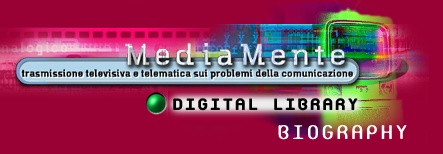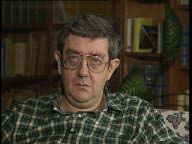 |
 |
Interview
BiographyLucio Russo was born in Venice 22 November 1944 and studied in Naples, where he graduated in physics in 1969. He held a scholarship in Naples from 1970 and was a temporary lecturer for the academic year 1973/74. He taught at Modena University, first as an assistant of theoretical mechanics (from 1978) and then as temporary professor of probability calculus (from 1981). In 1984 he was nominated full professor and in the academic year 1984/85 moved to the Tor Vergata University of Rome. He has studied at various scientific institutes, including the Institut des Hautes Etudes Scientifiques at Bures-sur-Ivette In France and Princeton University. He was detached to the Accademia dei Lincei for the 1999/2000 - 2001/2002 period. He has taught in Naples (methods of physical mathematics, general physics I, statistical mechanics), Modena (probability calculus, physical mathematics, higher mechanics, numerical analysis), Princeton (partial differential equations), Rome 'Tor Vergata' (probability calculus, rational mechanics, physical mathematics institutions, mathematical analysis II, history of mathematics). His main research interests are: problems of isomorphism between Bernoulli schemes and Markov processes; Gibbs measures in the Ising model; Bernoulli's percolation theory; the formulation of an approximate version of the classic zero-one law valid in the case of finite systems and uncertainty variables; reconstruction of images and automatic recognition of forms. He has worked for many years in these areas, creating a system for the automatic classification of digital signs, based on the idea of describing the distribution of signs with a Gibbs distribution relative to a Hamiltonian opportunity. In the field of the history of science he has carried out research into: the reconstruction of certain of Hipparchus' ideas of astronomy through an analysis of the evidence contained in literary works; the reconstruction of Heliocentricism attributed by Plutarch to Seleucus; several problems of Euclidean philology (in particular on the definition of the Book of Elements and the first postulate of Optics); the history of the theory of tides in the Hellenistic Age and the early modern age. This research, in collaboration with classical philologists, has led to the publication of essays in history of science and classical philology reviews and to the publication of his book La rivoluzione dimenticata (Feltrinelli, 1996), which was a finalist in the 1997 Premio Viareggio for essays. |
|||
| Recently, Lucio Russo has also been involved in the ongoing reform of secondary education in Italy, writing articles and a pamphlet (Segmenti e bastoncini, Feltrinelli, 1998), participating in research commissions, refresher courses for teachers, conventions and debates. |  |
